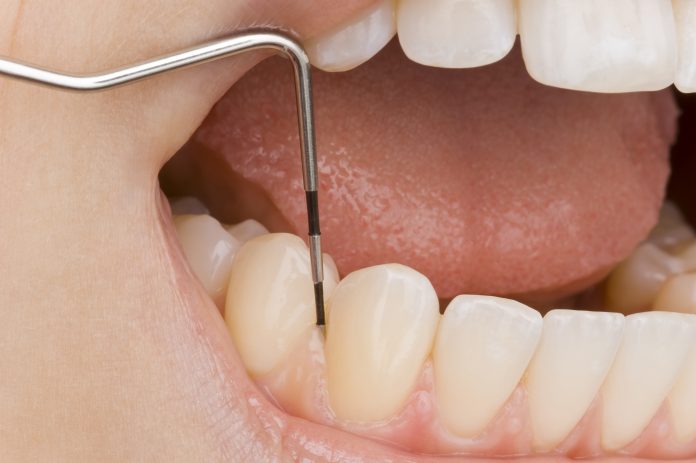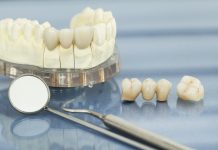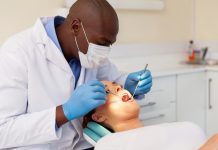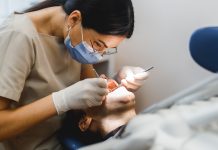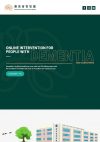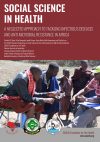Markus Sebastian, Executive Vice President and Managing Director, EMEA, Align Technology, discusses the importance of placing oral health at the forefront of the global healthcare agenda
Oral diseases are among the most common noncommunicable diseases (NCDs) worldwide and can affect patients at all ages. According to Public Health England, there are physical, psychological and social consequences associated with poor oral health, which can, in turn, significantly impact an individual’s quality of life. This can include negative effects on their self-esteem, food enjoyment, and communication ability.
Furthermore, while an issue such as misaligned teeth could be seen as purely aesthetic, malocclusions can sometimes signal deeper oral health issues. For example, proper alignment of the dental arch is important because when teeth are correctly aligned, the gums fit better around the tooth, and patients can enjoy better oral health. There were estimated to be more than
3.5 billion cases of oral diseases and other oral conditions globally in 2019, and many were preventable. However, if left untreated, the consequences of oral diseases and conditions may be severe and impact families, communities and wider healthcare systems.
Current care barriers exacerbate impacts
A doctor-led approach is paramount to optimum patient care, and working closely with dental professionals to improve dental practices is key to transforming smiles for patients.
Unfortunately, professional-led dental care is not easily accessible or affordable for all. As a result, many people do not have access to the tools, treatment and education to help prevent poor oral health. Additionally, the shutdown of key health services caused by the pandemic has created a considerable patient backlog globally, including those requiring treatment for oral health issues. Along with causing physical and emotional discomfort to patients, the impacts of oral diseases and conditions place a growing burden on health systems around the globe, a situation which the number of untreated patients has further exacerbated over the past two years.
“A doctor-led approach is paramount to optimum patient care, and working closely with dental professionals to improve dental practices is key to transforming smiles for patients.”
We need bolder actions on a global scale
While oral diseases may often become overshadowed by other, more high-profile health issues, awareness of the wider impacts of poor oral health and the need to address them has grown. This was recently demonstrated by the announcement of the World Health Organization’s landmark strategy on oral health. Their new bold vision calls for universal coverage of oral health globally by 2030, also aiming to address social and financial barriers preventing market access to effective care and tackle common risk factors for oral diseases and conditions. It’s clear that coordinated global action is required, but focused, localised efforts towards addressing patients’ oral health needs can also deliver a positive impact on the ground.
The needs of vulnerable patients
According to the World Health Organization, out-of-pocket costs for oral health care can be a major barrier to accessing care, which is why we must identify and offer patients with oral deformities a chance to defy their challenges and achieve the smile they have always wanted. Offering treatment through charitable campaigns is a way that orthodontists can help patients and give back to their communities. We and other dental firms offer it to patients with maxillofacial issues – problems related to the jaw and face region – which can make dental treatment challenging. Such health issues or health-related contraindications can affect whether patients can be fitted with fixed metal, appliance treatments for teeth alignment. Despite the notion that tooth alignment is simply for aesthetic purposes, it is an essential part of our overall health and well-being and plays a major role in supporting effective oral hygiene and improving self-cleaning.
It is also important that doctors are supported to provide dental treatment for vulnerable individuals, who may not be able to access appropriate dental services with the specific adjustments required, whether it is because they cannot be put through braces or simply cannot afford the cost of treatment. Providing further, continued education for dental professionals is key to addressing these important topics in practice and elevating the needs of vulnerable patients.
Tackling health inequalities
Despite promising advancements in the healthcare field over the last few decades, health inequalities still exist as many people cannot access the care they deserve. However, thanks to the work of many organisations worldwide, we are tackling these inequalities – including those which affect access to oral care – one step at a time. For example, Operation Smile, a global medical non-profit, has provided hundreds of thousands of free surgeries for people born with cleft lip and cleft palate in low- and middle-income countries. Together, we envision a future where health and dignity improve through safe surgery – consistent with our mission to transform smiles and change lives.
Maintaining a healthy, straight smile should be an important part of everyone’s healthcare routine, as good oral health is essential for optimum quality of life. However, there is a clear need to provide greater support for those who face barriers that make it difficult for them to achieve this. With the expertise of skilled orthodontists, we are committed to shaping a future where each person’s oral health gets priority.
Contributor Profile
Editor's Recommended Articles
-
Must Read >> The UK’s oral health needs levelling up
-
Must Read >> Time to brush up on oral health education



